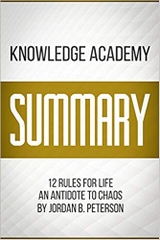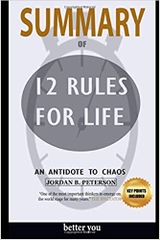-
-
-
Tổng tiền thanh toán:
-
-
Thông tin
-
Tìm sách theo yêu cầu
In gripping accounts of true cases, surgeon Atul Gawande explores the power and the limits of medicine, offering an unflinching view from the scalpel’s edge. Complications lays bare a science not in its idealized form but as it actually is—uncertain, perplexing, and profoundly human.
Complications is a 2002 National Book Award Finalist for Nonfiction.
Product Details
- Paperback: 269 pages
- Publisher: Picador (April 1, 2003)
- Language: English
- ISBN-10: 0312421702
- ISBN-13: 978-0312421700
- Product Dimensions: 8.3 x 5.6 x 0.8 inches
- Shipping Weight: 8.8 ounces (View shipping rates and policies)
- Average Customer Review: 4.7 out of 5 stars See all reviews (311 customer reviews)
- Amazon Best Sellers Rank: #1,545 in Books (See Top 100 in Books)
- #1 in Books > Textbooks > Medicine & Health Sciences > Medicine > Special Topics > Essays
- #1 in Books > Textbooks > Medicine & Health Sciences > Medicine > Clinical > Surgery > General
- #2 in Books > Medical Books > Medicine > Surgery > General Surgery
Editorial Reviews
Amazon.com Review
Gently dismantling the myth of medical infallibility, Dr. Atul Gawande's Complications: A Surgeon's Notes on an Imperfect Science is essential reading for anyone involved in medicine--on either end of the stethoscope. Medical professionals make mistakes, learn on the job, and improvise much of their technique and self-confidence. Gawande's tales are humane and passionate reminders that doctors are people, too. His prose is thoughtful and deeply engaging, shifting from sometimes painful stories of suffering patients (including his own child) to intriguing suggestions for improving medicine with the same care he expresses in the surgical theater. Some of his ideas will make health care providers nervous or even angry, but his disarming style, confessional tone, and thoughtful arguments should win over most readers. Complications is a book with heart and an excellent bedside manner, celebrating rather than berating doctors for being merely human. --Rob Lightner --This text refers to an out of print or unavailable edition of this title.
From Publishers Weekly
Medicine reveals itself as a fascinatingly complex and "fundamentally human endeavor" in this distinguished debut essay collection by a surgical resident and staff writer for the New Yorker. Gawande, a former Rhodes scholar and Harvard Medical School graduate, illuminates "the moments in which medicine actually happens," and describes his profession as an "enterprise of constantly changing knowledge, uncertain information, fallible individuals, and at the same time lives on the line." Gawande's background in philosophy and ethics is evident throughout these pieces, which range from edgy accounts of medical traumas to sobering analyses of doctors' anxieties and burnout. With humor, sensitivity and critical intelligence, he explores the pros and cons of new technologies, including a controversial factory model for routine surgeries that delivers superior success rates while dramatically cutting costs. He also describes treatment of such challenging conditions as morbid obesity, chronic pain and necrotizing fasciitis the often-fatal condition caused by dreaded "flesh-eating bacteria" and probes the agonizing process by which physicians balance knowledge and intuition to make seemingly impossible decisions. What draws practitioners to this challenging profession, he concludes, is the promise of "the alterable moment the fragile but crystalline opportunity for one's know-how, ability or just gut instinct to change the course of another's life for the better." These exquisitely crafted essays, in which medical subjects segue into explorations of much larger themes, place Gawande among the best in the field. National author tour.
Copyright 2002 Cahners Business Information, Inc.
--This text refers to an out of print or unavailable edition of this title.Most Helpful Customer Reviews
72 of 75 people found the following review helpfulBy taking a rest HALL OF FAME on May 8, 2002
Format: Hardcover
Comment Was this review helpful to you? YesNo"Complications", by Dr. Atul Gawande is a very gutsy and honest discussion about medicine in general, and surgeons in particular. The book is also unique, for unlike others of its type it is written by a surgeon that is starting his career, and not looking back upon it. I would imagine that the book caused some consternation amongst his peers. The book does nothing to minimize the skills and accomplishments of the men and women who can reach in to the body and do some pretty spectacular work. The book does portray them as human beings that come with all the normal traits that any of us do. The pressure they must deal with is that when they make a mistake, it can irreparably harm or cause the death of the patient they are trying to help.
The vast majority of careers that people practice does not involve decisions that can cause the outcomes I mention above. And few occupations require of their practitioners near perfection, that if not delivered has a major legal industry prepared to hammer them with lawsuits. Incompetent or negligent doctors should be punished and removed from practice, but what about a human error, or a doctor that makes every single decision that is correct and appropriate for the patient he or she sees, and misses the 1 in 250,000 cases where doing everything correctly can cause a patient to die. The final chapter of this book deals with exactly those type of odds. Whether those odds are beaten often depends on the instincts of the physician. And these intuitive feelings they may or may not act upon are certainly helped by experience, but younger doctors without the years that familiarity brings can often make a decision largely because they are so new. Dr.Read more ›
The vast majority of careers that people practice does not involve decisions that can cause the outcomes I mention above. And few occupations require of their practitioners near perfection, that if not delivered has a major legal industry prepared to hammer them with lawsuits. Incompetent or negligent doctors should be punished and removed from practice, but what about a human error, or a doctor that makes every single decision that is correct and appropriate for the patient he or she sees, and misses the 1 in 250,000 cases where doing everything correctly can cause a patient to die. The final chapter of this book deals with exactly those type of odds. Whether those odds are beaten often depends on the instincts of the physician. And these intuitive feelings they may or may not act upon are certainly helped by experience, but younger doctors without the years that familiarity brings can often make a decision largely because they are so new. Dr.Read more ›
109 of 124 people found the following review helpfulBy Kathleen Brennan on April 3, 2002
Format: Hardcover
Comment Was this review helpful to you? YesNoThis book is basically a collection of essays Gawande has published in the <i>New Yorker</i>, where he is a staff writer, along with a few from <i>Slate</i>. His writing style is similar to that of Malcolm Gladwell, Jerome Groopman, and other <i>New Yorker</i> authors of the David Remnick era - intelligent and clear.
Gawande is a surgical resident, so he is experienced enough to have insight into the medical profession and practices of surgeons, but still new enough in the field to bring a keen critical mind and the clarity of a relative outsider's perspective. Also, his compassion is one of his distinct qualities and shines through in the writing.
If you are a regular New Yorker reader, you probably have already read all of these essays. The brilliant essay about why doctors make mistakes is included, as well as memorable essays about when good doctors go bad, and how the practice of autopsy goes in and out of fashion. The only one that was new to me was the one about a surgeons' convention, which was entertaining but not crucial reading. It is nice to have them all in once place, but unless you are a completist or a rabid Gawande fan, I'd recommend getting it from the library or waiting for the paperback.
Gawande is a surgical resident, so he is experienced enough to have insight into the medical profession and practices of surgeons, but still new enough in the field to bring a keen critical mind and the clarity of a relative outsider's perspective. Also, his compassion is one of his distinct qualities and shines through in the writing.
If you are a regular New Yorker reader, you probably have already read all of these essays. The brilliant essay about why doctors make mistakes is included, as well as memorable essays about when good doctors go bad, and how the practice of autopsy goes in and out of fashion. The only one that was new to me was the one about a surgeons' convention, which was entertaining but not crucial reading. It is nice to have them all in once place, but unless you are a completist or a rabid Gawande fan, I'd recommend getting it from the library or waiting for the paperback.
19 of 20 people found the following review helpfulBy David Sullivan on April 10, 2002
Format: Hardcover
Comment Was this review helpful to you? YesNoThere are other writing doctors around, but there's nobody like Atul Gawande. I'd first got to know his voice, his distinctive approach -- immense vivid medical detail combined with an almost philosophical interest in the systemic or ethical dimensions of the problems he explores--in the pages of The New Yorker. But there's a lot here that never appeared in that magazine, and, besides, the whole really is greater than the sum of its part. His arguments -- about the fallibility of medicine, about judgment under conditions of uncertainty, etc. -- run through the chapters like sinews. "Complications" is a genuine page turner, but you come away not only entertained, but enlightened, too. I've recommended it to a lot of my friends, and nobody's been disappointed yet.
15 of 16 people found the following review helpfulBy Timothy Haugh TOP 1000 REVIEWERVINE VOICE on June 25, 2002
Format: Hardcover Verified Purchase
Rarely do I think a book is so important and so good that it should be read by everyone. Atul Gawande has written such a book.
America has the best health care in the world and yet our health care system is a mess. High insurance rates and malpractice suits make for a situation where patients often cannot get the help they need and many doctors are afraid of taking risks because of the chance of being sued. With a willingness to realize certain things and make some changes, America could turn it's medical services into a true blessing for all of its citizens.
What is the most important realization? That doctors are human beings and even the best of them are going to make mistakes from time to time. This is probably the most important point Gawande makes in his book. It is a sad state of affairs when every single doctor in this nation expects to be the defendant in a major lawsuit at least once in their careers. How many possible brilliant doctors has this single fact driven from the profession? It is one thing when a doctor makes an error through maliciousness but a doctor who makes an honest mistake should not have to fear career destruction. If something could be done about all this litigation, it would likely be easier to drive truly bad doctors from the profession because doctors and hospitals would be more like to start admitting when things go haywire and actually make a concerted effort to try to make things better.
Though his insights into what it's like to be a doctor are incredibly valuable, I find his views on the psychology of being a patient interesting as well. His articles on the mystery of pain, the horrors of nausea & blushing (yes, blushing) and the results of a patient who has undergone gastric bypass surgery for obesity are eye-openers.Read more ›
America has the best health care in the world and yet our health care system is a mess. High insurance rates and malpractice suits make for a situation where patients often cannot get the help they need and many doctors are afraid of taking risks because of the chance of being sued. With a willingness to realize certain things and make some changes, America could turn it's medical services into a true blessing for all of its citizens.
What is the most important realization? That doctors are human beings and even the best of them are going to make mistakes from time to time. This is probably the most important point Gawande makes in his book. It is a sad state of affairs when every single doctor in this nation expects to be the defendant in a major lawsuit at least once in their careers. How many possible brilliant doctors has this single fact driven from the profession? It is one thing when a doctor makes an error through maliciousness but a doctor who makes an honest mistake should not have to fear career destruction. If something could be done about all this litigation, it would likely be easier to drive truly bad doctors from the profession because doctors and hospitals would be more like to start admitting when things go haywire and actually make a concerted effort to try to make things better.
Though his insights into what it's like to be a doctor are incredibly valuable, I find his views on the psychology of being a patient interesting as well. His articles on the mystery of pain, the horrors of nausea & blushing (yes, blushing) and the results of a patient who has undergone gastric bypass surgery for obesity are eye-openers.Read more ›
Xem thêm tại amazon.com
- Thông tin chi tiết
- Mục lục
- Đọc thử
- Đọc thử
- Đánh giá & bình luận của người mua
- Những cuốn sách cùng chủ đề hoặc có liên quan
Link: http://www.amazon.com/Complications-Surgeons-Notes-Imperfect-Science/dp/0312421702/
Tại web chỉ có một phần nhỏ các đầu sách đang có nên nếu cần tìm sách gì các bạn có thể liên hệ trực tiếp với Thư viện qua Mail, Zalo, Fanpage nhé
Đăng ký nhận tin qua email
Hãy đăng ký ngay hôm nay để nhận được những tin tức cập nhật mới nhất về sản phẩm và các chương trình giảm giá, khuyến mại của chúng tôi.












